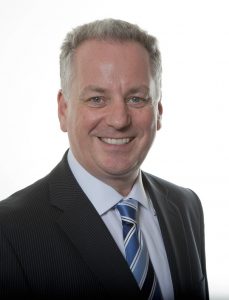HMDT Blog: Lord McConnell: Remember Rwanda and never forget our responsibility to protect
Rt Hon Lord McConnell of Glenscorrodale is a former First Minister of Scotland and now a Labour life peer in the House of Lords.
Since leaving his office in 2007, he has been focusing his work tackling poverty in Africa as Gordon Brown’s Special Representative for Peacebuilding between 2008 and 2010 and more recently the Chair of the All-Party Parliamentary Group on the African Great Lakes region. To mark the 20th anniversary of the Genocide in Rwanda, Lord McConnell discusses the importance of remembrance, rebuilding and how we must all act to ensure such an atrocity never occurs again.
Tonight I am contributing to International Alert’s Peace Talks’ public panel on the 20th anniversary of the Genocide in Rwanda.
It is also my fourth day of taking the Live Below the Line challenge: £1 a day (for five days) to cover all meals and drinks, highlighting the scandal of extreme poverty and raising funds to change lives. It has been difficult, but enlightening too. Despite the headaches and fatigue, I was determined to accept the invitation from International Alert, and delighted to be asked to blog here for Holocaust Memorial Day Trust because, like the Holocaust, the Genocide in Rwanda must never be forgotten.
Around a million Tutsis and moderate Hutus – men, women and children – were killed in 100 days in spring 1994 as the result of a well-planned mass slaughter. The massacres were carried out largely by hand, using clubs and machetes. Lists were drawn up, and national police, soldiers and government-backed militias quickly executed the unwanted. There was no mercy. Despite numerous warning signs the international community failed to intervene and prevent the genocide and has instead simply ignored the situation. In fact their actions almost certainly made the death toll worse.

Jack McConnell
Twenty year later, the world comes together to show support for the survivors and acknowledgement for their enormous achievements in reconciliation and nation-building since. Kwibuka20 – Kwibuka meaning ‘remember’ in Kinyarwanda – began with a series of events internationally leading up to the national commemoration on 7 April in Rwanda. Flames of Remembrance travelled around the world from 7 January until 7 April, spreading the message of unity and renewal.
In the UK, remembrance began with a truly meaningful event on 7 January organised by the Commonwealth, in partnership with the High Commission of the Republic of Rwanda, followed by Holocaust Memorial Day 2014 giving special recognition to this Genocide. On 26 March, the UK Parliament hosted the Kwibuka Conversation with Rwanda’s Minister of Foreign Affairs and Cooperation, Hon. Louise Mushikiwabo. I was honoured to speak at both events where survivors of the Genocide shared their deepest personal experiences and government representatives laid out how to ‘Remember, Unite and Renew’.
While listening to the family stories I felt as if these tragedies had just happened yesterday. The clarity of the memories of the survivors emphasised the scale of their loss and illustrated just how much Rwanda as a nation has already moved beyond these dark times. Even though the traumatic past still haunts many survivors, Rwanda has embarked on a new path to a different future aiming for economic, political and social prosperity. Kwibuka20 is therefore not only an era of remembrance, but a time to learn about Rwanda’s amazing journey since the Genocide.
The Genocide should never be ignored, but development is the best insurance policy for the future. Today, Rwanda has a growing economy, it is leading Africa’s digital revolution and it is said to be the easiest place to do business on the continent. Levels of community volunteering, and women’s participation in politics and public life, are amongst the best in the world. And, importantly, the work to re-integrate former combatants goes on.
Just as it is important to never lose our horror at the way the Genocide was planned and so brutal, it is vital for the international community to remember and never to look away again. The Responsibility to Protect our fellow human beings, when genocide is happening or on the way, must be a fundamental principle of our international relations. Despite all the difficulties of securing consistent application of that from the United Nations and others, we must all maintain the pressure for that policy to be real. Those who died when the world turned away from Rwanda deserve no less.
The HMDT blog highlights topics relevant to our work in the field of Holocaust and genocide awareness and commemoration. The views expressed are those of the author and do not necessarily represent the views of HMDT.